About us
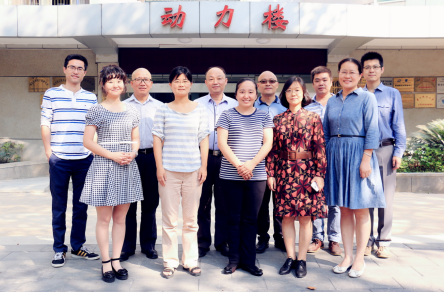 The Department of New Energy Science and Engineering (NESE) was founded in 2010 in the School of Energy and Power Engineering of Huazhong University of Science and Technology to meet with the sustainable and low carbon development for society in China. The department of NESE was the first batch of New Energy specialty approved by the Ministry of Education and it was rated as a national characteristic specialty. In the autumn of 2011, the department started to admit undergraduate students. From then, the department of NESE has established complete professional training programs of "Bachelor-Master-Doctor" and it has achieved rapid development. An experiment platform was built for undergraduate students to conduct experiments (e.g. biomass, wind power, and solar energy). In the following, an internship training center was built outside the campus for senior undergraduate students to practice application techniques. There are a series of platforms such as the Sino-US Clean Energy Joint Research Center, National Energy Clean and Low Carbon Power Generation R & D Center, National Energy Biomass Gas R & D Center, and Sino-Australia Joint R & D Center of Coal and Biomass for doing research. Also, the department is an important support unit of China-EU Institute for Clean and Renewable Energies and New Energy Institute •Wuhan. Besides, the department of NESE has undertaken many projects supported by the Natural Science Foundation of China, National Key Research and Development Project of China and Natural Science Foundation of Hubei Province and formed a close partnership with industry and academic community.
The Department of New Energy Science and Engineering (NESE) was founded in 2010 in the School of Energy and Power Engineering of Huazhong University of Science and Technology to meet with the sustainable and low carbon development for society in China. The department of NESE was the first batch of New Energy specialty approved by the Ministry of Education and it was rated as a national characteristic specialty. In the autumn of 2011, the department started to admit undergraduate students. From then, the department of NESE has established complete professional training programs of "Bachelor-Master-Doctor" and it has achieved rapid development. An experiment platform was built for undergraduate students to conduct experiments (e.g. biomass, wind power, and solar energy). In the following, an internship training center was built outside the campus for senior undergraduate students to practice application techniques. There are a series of platforms such as the Sino-US Clean Energy Joint Research Center, National Energy Clean and Low Carbon Power Generation R & D Center, National Energy Biomass Gas R & D Center, and Sino-Australia Joint R & D Center of Coal and Biomass for doing research. Also, the department is an important support unit of China-EU Institute for Clean and Renewable Energies and New Energy Institute •Wuhan. Besides, the department of NESE has undertaken many projects supported by the Natural Science Foundation of China, National Key Research and Development Project of China and Natural Science Foundation of Hubei Province and formed a close partnership with industry and academic community.
Currently, the department has 12 full-time faculty members, including 1 full professor and 1 senior researcher, 6 associate professors and 4 lecturers, all of which have obtained Ph.D. degrees. They came from diverse research background on engineering, thermal science, chemistry, environment science, economy and ecological science with a highly international version. 10 of them have worked at oversea top universities or institutes, such as Prof. Qing Yang used to be a visiting scholar at Harvard University and now is appointed by Harvard University as an associate. The dean of the department is Professor Hanping Chen, who is also a renowned scientist and educator of the State Key Laboratory of Coal Combustion. Besides, there are 11 adjunct faculty including five well-known professors and six associate professors.
The research by the Department of New Energy Science and Technology aims to gain the break-through knowledge to solve the challenges on the development of clean and renewable energies. The research conducted in the program covers the challenges faced by clean and renewable energy from different levels and a broad spectrum of disciplines. On macroscopic economy level, the faulty conducts research on energy economy and policy affecting development of renewable energy. From the theoretical level, the faculty conduct theory research on the heat and mass transfer and the fluid dynamics of the clean and renewable energy system in multi-levels. From application aspect, the faculty conducts research to store, convert and use renewable energy sources. On environment level, how the environment is mutually affected from the whole life cycle of renewable energy systems is being studied, with special focus on the relationship between climate change and so-called low carbon energy systems.
Research areas:
(1)Clean utilization of energies
Group members: Hanping Chen, Haiping Yang, Jingai Shao, Song Li, Huan Liu, Chang Wen, Jingying Xu, Long Jiang, Fan Wu
High-value and high-efficient clean utilization of fuels and waste, e.g. coal, biomass, municipal solid waste; theory and technology investigation of thermal chemical conversion (combustion, pyrolysis, and gasification); pollutant (SOx, NOx, particulate matters and heavy metals) prevention and control; develop and design of novel nanoporous materials; metal-organic frameworks (MOFs) for energy gas (CH4, H2 ) purification and storage, greenhouse gas (CO2) separation, and volatile organic compounds (CH₂O) removal; power generation; carbon capture and utilization.
(2)Convert, store and utilization of renewable energy source
Group members: Hanping Chen, Jingai Shao, Qing Yang, Song Li, Huan Liu, Chang Wen, Peng Wu, Jingying Xu, Long Jiang, Fan Wu
Convert biomass into other high rank energy and chemical products with high efficiency; development of novel energy storage devices (supercapacitors, lithium batteries, flow batteries) via investigation of energy-storage mechanism; aerodynamic optimal design of wind turbines; design of solar thermal power generation system; distributed energy and micro-web.
(3)Packaging technologies for light emitting diodes (LEDs) and integrated circuits (IC)
Group members: Xiaobing Luo
Heat transfer, fluid dynamics and optics design in LED/IC packaging; novel technologies for high-efficiency heat dissipation, high optical performance and ideal packaging processes;
(4)Thermal and fluidic performance of energy materials
Group members: Song Li, Peng Wu
By use of high-through put screening technique combined with Molecular Dynamics, Monte Carlo simulations as well as first-principle computations to explore high-performance energy materials, such as MOFs, zeolites, carbon materials, and organic electrolytes; development and rational design of energy-saving materials by fundamental understanding of the thermal and fluidic process relevant to the application of energy materials.
(5)Energy–economy–environment nexus and policy
Group members: Qing Yang
Simulate energy-economy-environment nexus such as investigate the impact of economy on energy consumption and environmental emissions, provide systems accounting for energy and the relevant pollutants, greenhouse gas emissions accounting; formulate low carbon and clean development policies, perform systems analysis for renewable and ecological engineering projects.
(6)Energy efficiency
Group members: Hanping Chen, Qing Yang, Jingying Xu, Long Jiang, Fan Wu
Measure and assess the energy efficiency of industry, building and transportation systems; provide efficiency improvement solutions based on the rank of energy efficiency.
(7)Energy and environment
Group members: Qing Yang
With research focus on the relationship between energy systems and environment, systems accounting and analysis for clean and renewable energies has been conducted in the assessment/optimization/control/management/policy/strategy of clean and renewable energy derived processes, with multiple physical mechanisms (thermodynamics, heat and mass transfer, transport and reaction, environment, renewable resources, land use, natural resources, carbon emissions and climate change, ecological systems, regional and global sustainability), from environmental and ecological perspectives.
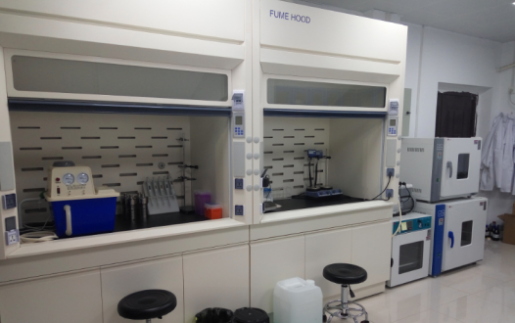
A corner of the laboratory

Environment friendly biomass utilization system
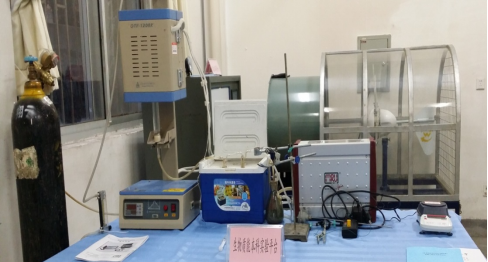
Bench-scale thermal conversion system of biomass

Bench-scale dish-type solar energy experimental system
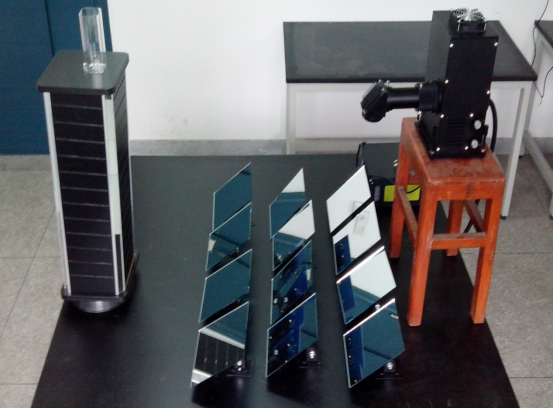
Bench-scale tower-type solar energy experimental system
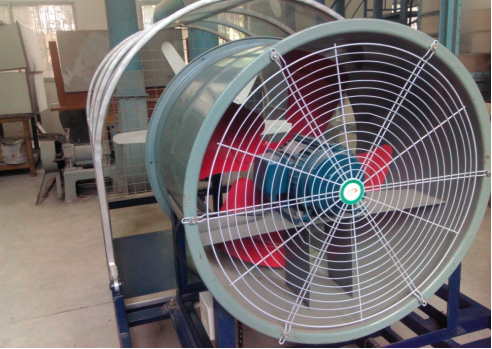
Wind turbine design and performance test platform
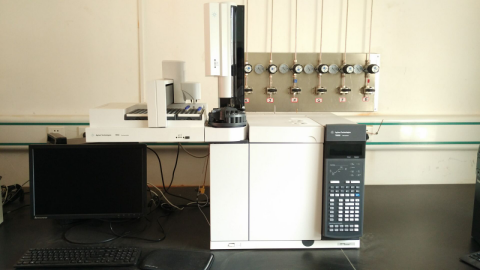
Gas Chromatography-Flame Ionization Detector (GC-FID) Analyzer
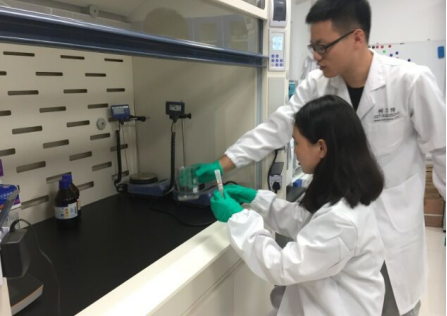
Fume hood in the laboratory




